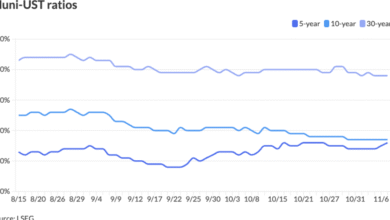Strengthening oversight of bond market

Two cases surfaced recently in the media regarding the auditor of two listed companies expressing concerns vis-à-vis the financial stability of these listed companies. The effectiveness of the action taken by the authorities concerning the protection of the bond holders is questionable. More specifically, my concerns are:
1) How can a bond issuer facing liquidity problems be allowed to roll over the existing maturing bond, just one day before the bond repayment was due?
2) It has also become customary for bond issuers to launch a new bond issue only a few months before the old one matures, with the near-explicit (but not stated) intent to use the new proceeds to redeem the old debt. To my mind, this too is a scheme, whereby a bond issuer rolls over an existing bond issue. Although this is allowed, there are other risks that must be evaluated. These relate to protective measures that should be put in place to determine not only the clear purpose of the new bond issue but also check the key financials surrounding the new bond issues.
Auditors’ responsibilities are defined by the International Standard on Auditing, which standards require auditors to report material uncertainty and to draw attention to going concerns by making appropriate disclosures when clearly defined criteria and procedures adopted by the auditor indicate that solvency issues can arise.
Hence, audited financial statements are key in the supervisory role of the MFSA, and these should be scrutinised very closely, as these could be a source to trigger off a red flag to the regulator. How often have such investigations been conducted where auditors of listed entities have highlighted solvency or indeed other financial difficulties? The issues concern the supervisory checks that the Malta Stock Exchange and the MFSA can implement in these circumstances to protect the public interest.
The MFSA Capital Markets Rules set out disclosure requirements, listing suspension and lifting procedures. They also define the MFSA’s supervisory powers. These rules already allow for suspension and the imposition of conditions when normal dealings are no longer possible. However, I believe the following checks and reforms can serve as valuable supplements to the current supervisory measures implemented by the market regulators.
The courses of action being suggested below are measures that can be applied to those listed entities whose auditors have raised serious concerns regarding their ongoing operating capability as a going concern. These are:
a) Automatic immediate disclosure rule: when an issuer’s auditor includes a “material uncertainty related to going concern” paragraph, the issuer is required to file a standardised material uncertainty notice to the MSE and MFSA within a specified period.
b) Mandatory board statement: The listed entity’s board of directors is to publish a contemporaneous directors’ statement setting out specific cashflow forecasts, assumptions, and independent third-party validation of any refinancing plan, and
c) Automatic precautionary suspension: Trading on the stock exchange should be suspended in the following circumstances:
I. The issuer’s auditor reports that events existed at the balance sheet date that give rise to a material uncertainty on the entity’s ability to continue to operate, and
II. When the issuer proposes any debt restructuring/ rollover within 30 days of maturity.
Trading will resume only after (i) bondholders receive complete information about the auditor’s liquidity issues, and (ii) the issuer appoints an independent advisor to assess the fairness and the practicality of the rollover.
Regarding last-minute roll-overs, there should be measures to strengthen the policies available to the Malta Stock Exchange and the MFSA, particularly relating to those cases when auditors have expressly noted their concerns on the solvency of the entities concerned.
It is time to investigate today’s way of doing business– Marcel Coppini
Among other things, these measures may include the prohibition to issue a new rolled-over bond before an enhanced independent solvency review is carried out, and the appointment of trustees (or bondholders’ representatives) to certify that the rollover terms do not impinge in any way on existing bondholder rights, including that of receiving independent legal and financial advice before recommending the rollover.
Of equal importance is the need to strengthen the investigative powers presently available to the market and financial services regulators to determine how companies that fall short of their listing rules obligations can be detected more expeditiously.
These investigative measures would include closer monitoring of the financial affairs of those entities finding themselves in difficulties to find out why the actual results went so far astray from the forecasts included in their prospectuses.
Could this have been due to bad management, changing market conditions, or just inordinate spending, disproportionate to the revenue stream generated by the company?
The regulator must be able to intervene more expeditiously and ensure the rescue plan by the ailing entity is a tenable one.
More importantly, one needs to assess the effectiveness of public oversight in protecting retail bondholders and market integrity, particularly in those instances were issuers face liquidity stress.
The legal and other regulatory frameworks governing the supervisory roles, e.g. the Malta Capital Markets Rules, and the relevant sections of the Companies Act, and the Accountancy Profession Act need to be strengthened.
To improve policy effectiveness, a protocol could be established so that when an auditor flags going-concern issues, the MFSA and MSE promptly open a close-monitoring case, share information, and issue public warnings if issuer disclosures are found to be lacking or misleading during refinancing.
This, I believe, will better ensure that rollover bonds are not just shifting the problem forward without a credible repayment path.
While one may argue that inability of a bond issuer to meet its bond repayment commitment is an inherent part of investing in a capital market (including bonds) one needs to raise an awareness of the need to review the effectiveness of supervisory policies being adopted to avoid these situations.
In truth, bond holders have expressed their concerns about increasing solvency concerns over entities they have invested in, and this warrants closer attention by the regulators.
To conclude, it is time to investigate the realities of today’s way of doing business, and tweak our regulatory measures in a manner that can better protect small private bondholders and minority shareholders.
In most cases, these bond holders are often retired individuals who have invested all their life savings in the bond market, in what the public believes it to be a lower return but much more secure and protected market than equity.
Regulators should consider these supplementary measures to ensure the bond issuer can repay the bond holder at the maturity of the rolled-over bond.
Marcel Coppini is a fellow of the Malta Institute of Accountants and holds a practising certificate in auditing. He was instrumental in the setting up of the Quality Assurance Unit (QAU) in Malta in 2006, which was then required by the EU Audit directive, which unit he headed until his retirement in 2016.
Credit: Source link






